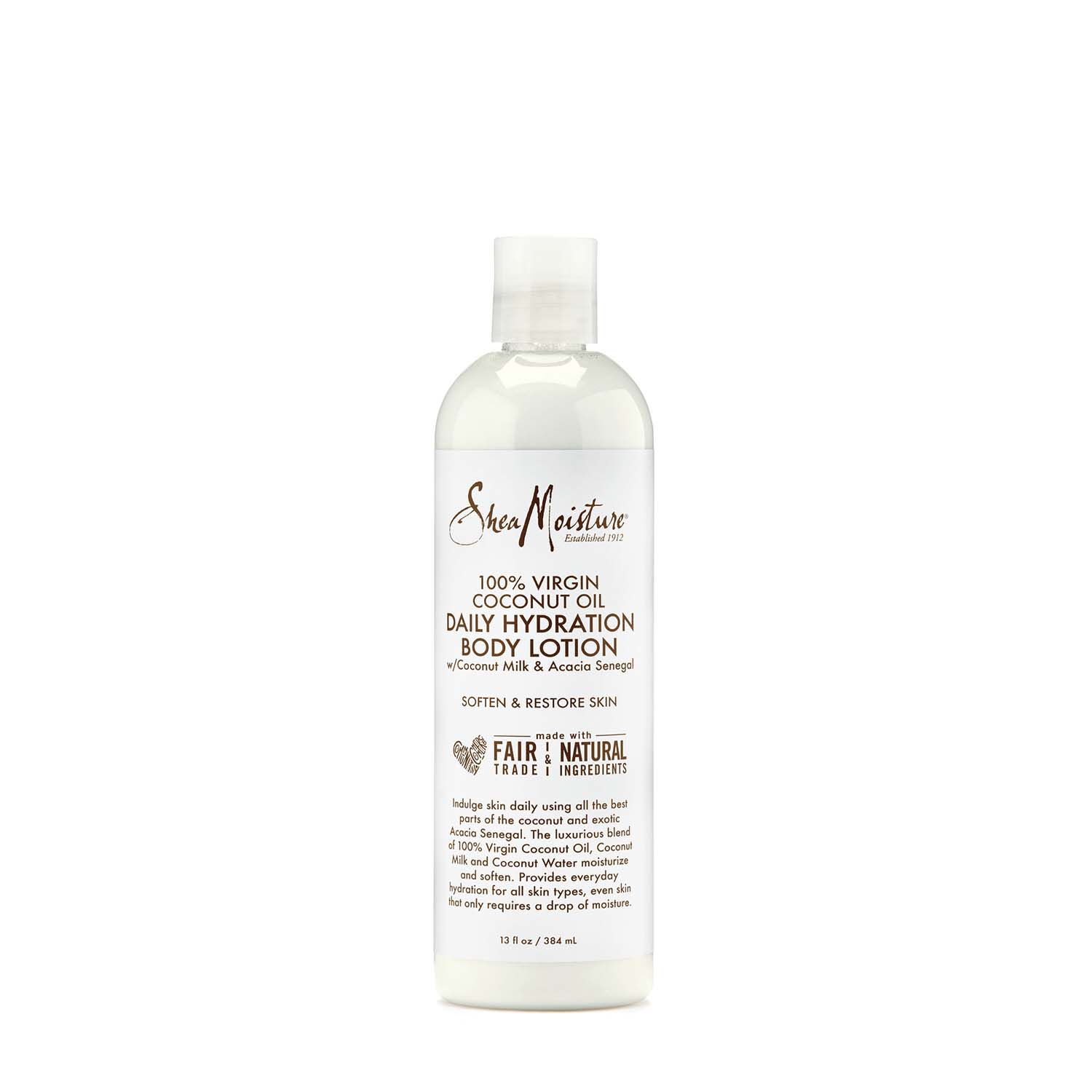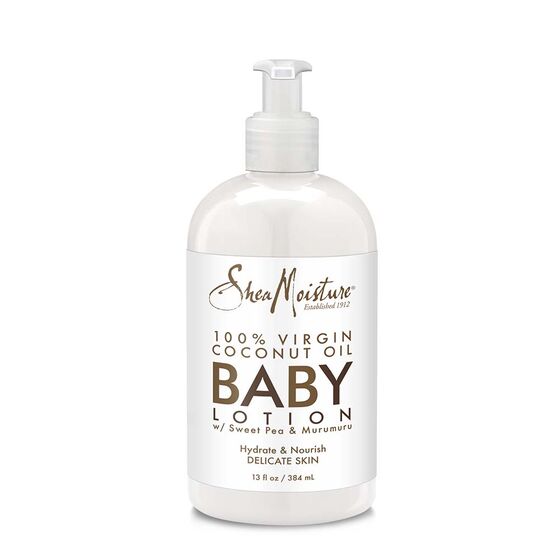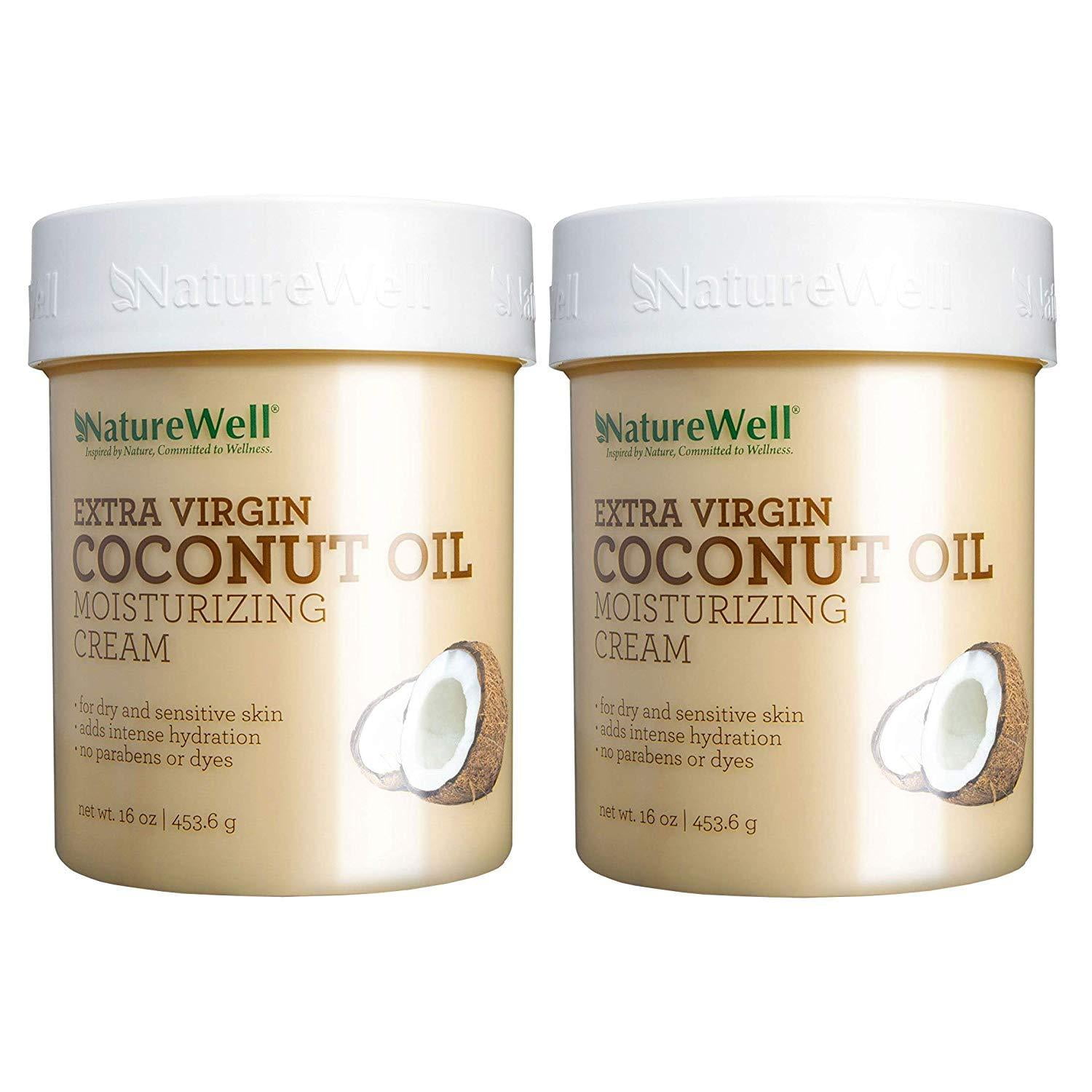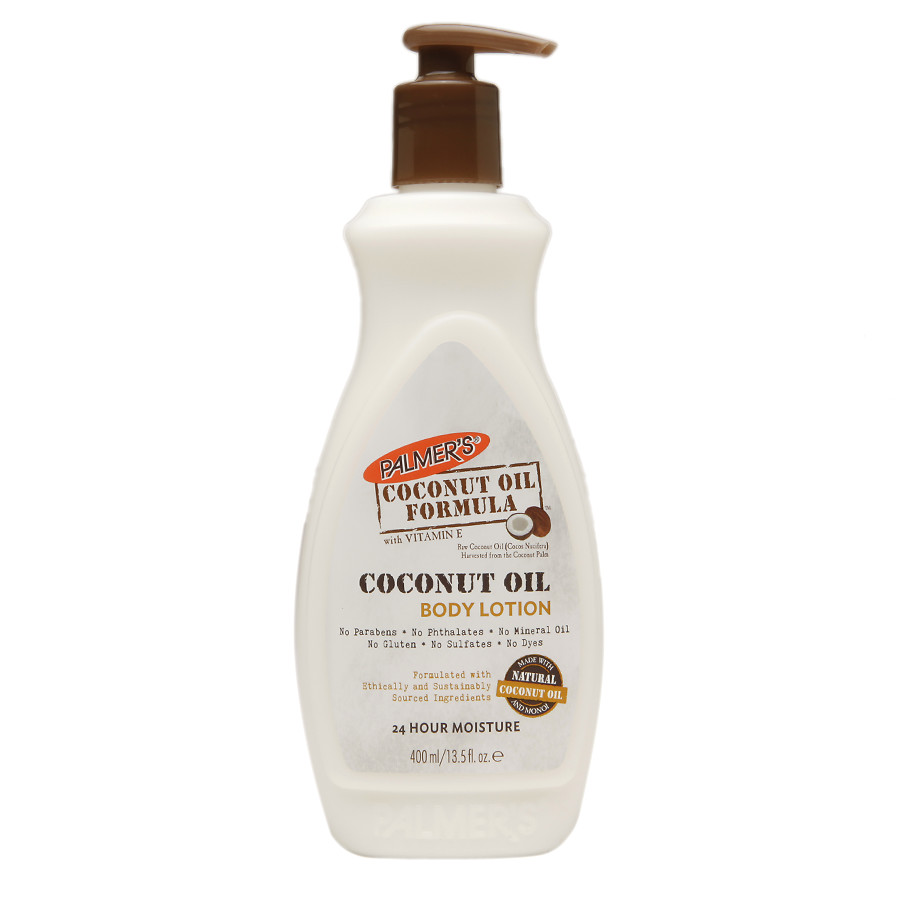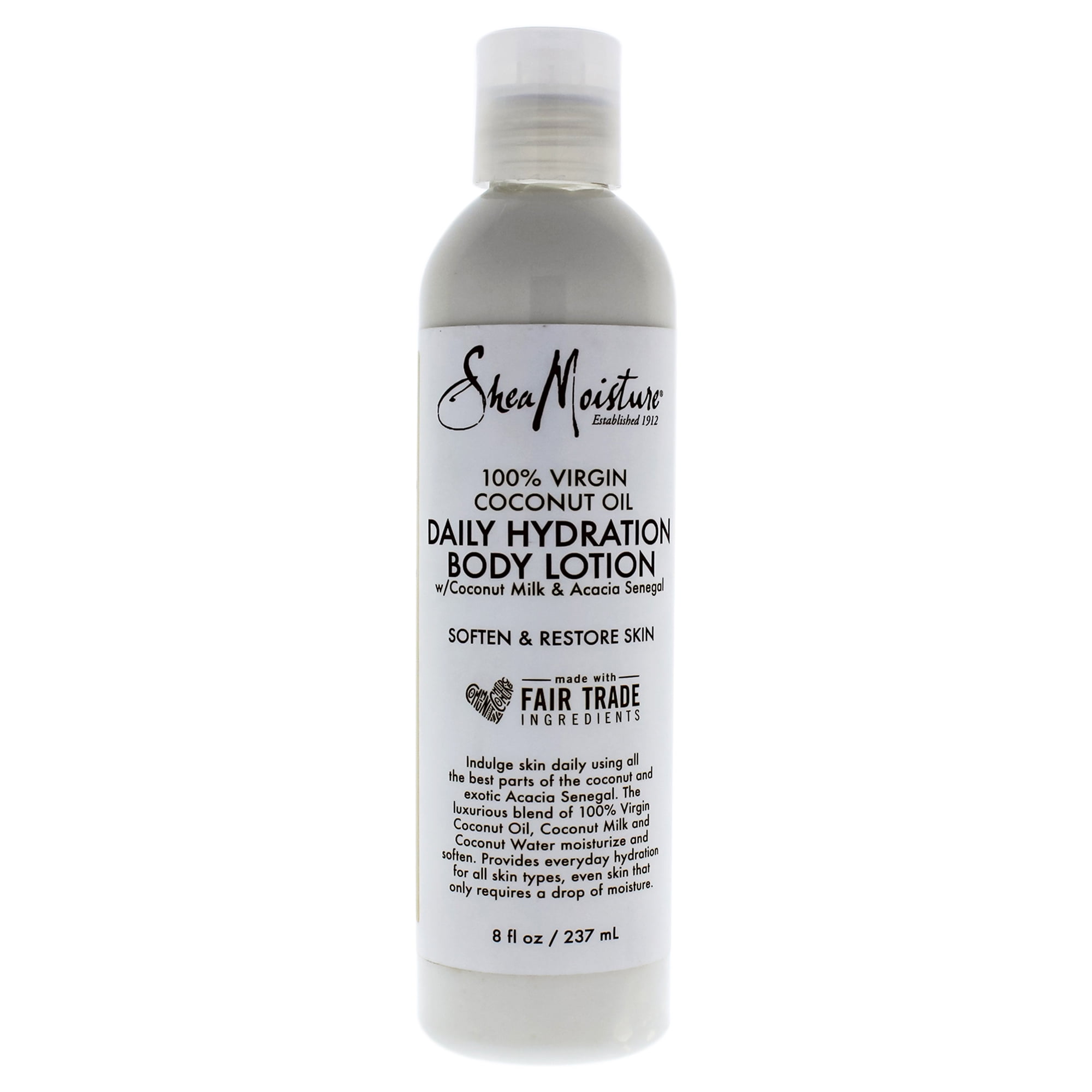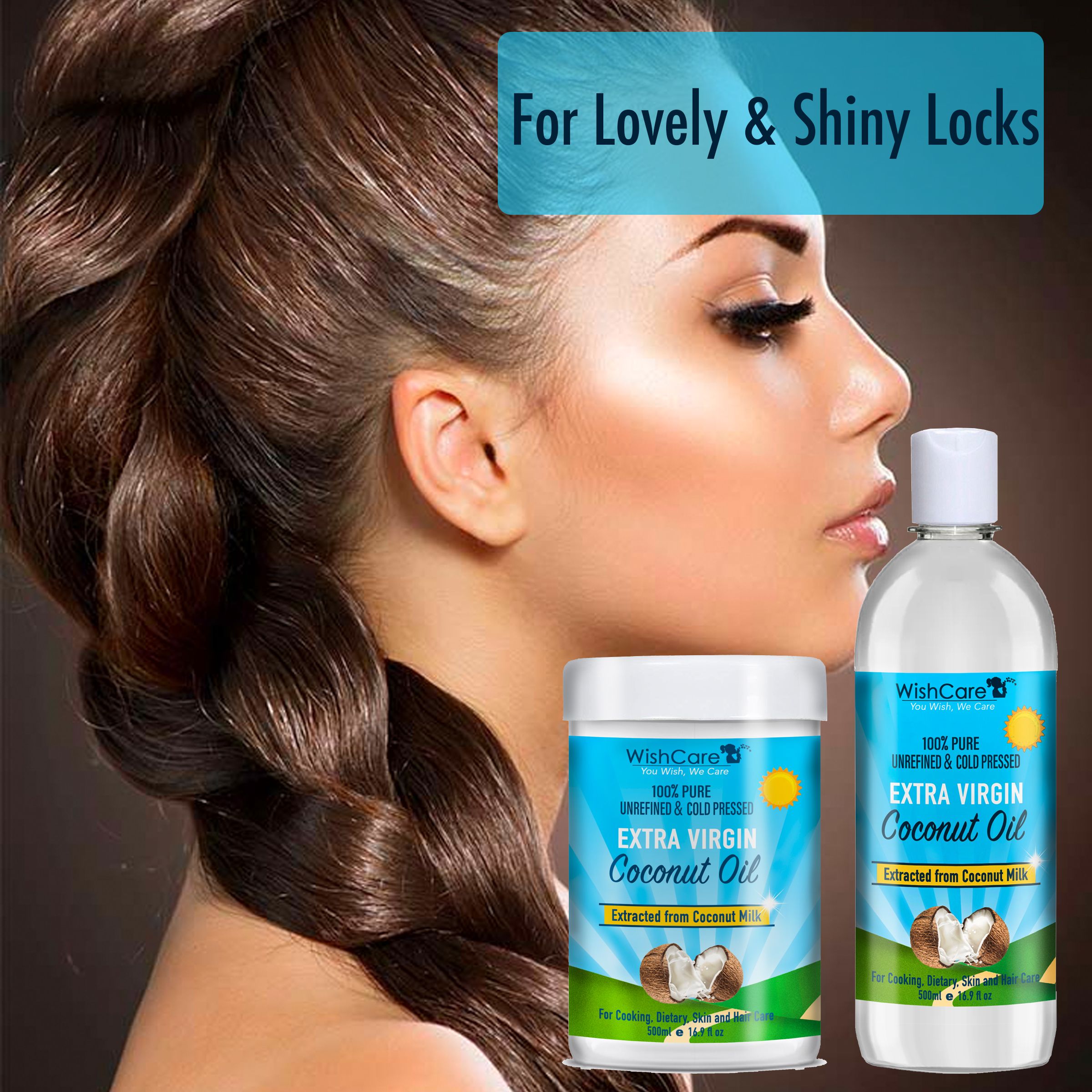Coconut oil is easily absorbed into the skin and is known to have many health benefits, including those from vitamins E and K, as well as its antifungal and antibacterial properties. Along with cocoa butter, coconut oil is likely to cause breakouts. "In general, coconut oil is a great option for almost everybody, except if you have oily skin and you're acne prone, I would not use it on the face," Katta says. In astudy published in the journalDermatitis, researchers found coconut oil was better than olive oil at moisturizing skin when used in a carrier. Remember to look for cold-pressed, unrefined coconut oil for your face or skin care.
Is Oil More Moisturizing Than Lotion Cantu Skin Therapy Body Lotions deliver long-lasting moisture you can see and feel. Our Coconut Oil Body Lotion is formulated with natural coconut oil and an ultra-moisturizing blend of shea butter, cocoa butter, Vitamin E and aloe to help restore the skin's natural glow. This fast-absorbing lotion helps keep the skin moisturized and soft to the touch. Enjoy subtle notes of coconut, citrus, and honey.
Many people have olive oil, coconut oil, or sunflower seed oil in their kitchen cabinet. But can the same oils you cook with be applied to your face? Katta confirms that organic and unrefined products are your best bet.
I have used coconut oil, shea butter, and vitamin E each on their own as my sole moisturizer, but none with complete success. The coconut oil soaked in quickly but eventually left my skin feeling dry, the shea butter coated my skin well but seemed to just sit on top and feel greasy. A few months ago I started blending 1 part shea butter, 1 part coconut oil, a few drops of jojoba oil, and a few drops of my jasmine and patchouli essential oils. I actually just ordered a 5 lb bag of shea butter to whip up some more. This is a very popular alternative that is very well-known, cheap and can be found at your local grocery store. Coconut oil contains antioxidants and vitamins that help your skin stay moisturized.
Many people worry about feeling sticky after applying it, but coconut oil absorbs rapidly into your skin and it leaves it feeling moisturized and smooth. Coconut Oil contains fatty acids that help reduce signs of aging, keeps dry skin moisturized, and can also help with other skin problems such as stretch marks, scars, cellulite, or even diaper rash. It can also be used as a natural SPF sunscreen as it blocks 20% of ultraviolet radiation. Extracted from the seeds of wild rose bushes, rose hip seed oil has seen a surge in popularity and is increasingly found in facial skincare products that tout moisturizing, anti-aging benefits. Natural oils are made from all-natural ingredients like fruits, nuts, vegetables, etc.
Some examples of natural face oils include jojoba oil, argan oil, almond oil, sunflower oil, etc. These types of oils contain vitamins, minerals, and other nutrients that promote healthy skin. Coconut oil is one of the best natural oils you can use for your skin as it contains lauric acid, which has antibacterial properties. Consider your skin type before using coconut oil. While coconut oil can be a great moisturizer for some people, it may not be the best choice for others.
Coconut oil may be suitable for dry or normal skin types. If you have oily or acne prone skin, use coconut oil sparingly or choose another natural treatment, such as tea tree oil or aloe vera gel. In general, skincare oils help the skin's lipid barrier retain moisture. Other nourishing ingredients to look for in a lotion include argan, sweet almond, and jojoba oils.
Some also incorporate skin care all-stars like shea butter and cocoa butter, which you'll want to reach for when you have especially dry skin. And, if your skin is naturally on the oily side, you may prefer a lightweight spray instead of a rich cream or lotion. Moisturizer is made to maintain the natural oil of your skin by providing it with extra moisture. It prevents excessive sebum production and clogging of pores. On the other hand, face oils contain a high concentration of fatty acids and other ingredients that can penetrate deep into the skin, nourishing it from within. They have the ability to improve skin elasticity and provide a protective barrier against dehydration.
The most notable difference between these two moisturizers is Shea butter is suitable for all skin types, but coconut oil is not. Coconut oil doesn't suit oily skin and acne-prone skin, which can result in clogged pores and acne breakouts. Besides, if you apply too much coconut oil to your skin, it can become greasy. That's why coconut oil is not recommended to all.
I have found that Doterra essential oils are the best ones out there. They are totally pure and very potent so a little goes a long way. I add doterra oils to my coconut lotion and it adds wonderful benefits based on the kind of oil I used.
This company also provides tons of info about how to use the oils and what each one can do. As long as you're making any coconut lotion, salve or bar its always a good idea to add some nutracuticals to the mix to enhance it. Easy ones because they come in oil already, include vitamin E , tocotrienols, CoQ10 , grapeseed oil, circumin (micronized, careful the coloring!) and beta carotene . You can mix equal amounts of water with the coconut oil by creating an emulsion with 1 TBSP lecithin (non GMO!) per cup of mix . For the organic herbs I suggest making an infusion and strain out the pieces before mixing with the warmed coconut oil & lecithin. Add zinc oxide for some added sun protection or D3 oil if you're not getting sun.
You may have to experiment to get the right mixture result depending on your specific ingredients, but its easy to warm up again and add more of something as needed to get the right result. Sometimes the resulting warm mixed liquid does not set up well until refrigerated, thereafter it was a stable solid or semi solid at room temp. "Tea tree oil has developed a reputation for being a great sort of antibacterial, antifungal ingredient. It does have those properties, but you really have to use it very carefully," she says. Natural oils, such as coconut oil, shea butter oil, and olive oil, have been used for skin care and hair care for centuries. Generation after generation have touted them for various moisturizing, protective, and antibacterial qualities.
Whipped coconut oil works wonderfully as a moisturizer. It is easy to apply and doesn't harden when it's cold. You can add essential oils for a lovely fragrance if you like.
I prefer the scent ofvirgin coconut oil, so I don't add anything to it. By now, we all know how great oils and lotions are at keeping the skin smooth and hydrated, playing a vital role in any body care routine. But with all the options on the market in both categories, you may have a hard time deciding whether a body oil or body lotion is the better option. After all, both skin care products promise soft, hydrated skin, so what's the difference, right? Well, you can skip the Google search because we're here to share some helpful information. Read on to find out if body oil is better than lotion, so you can decide which product to add to your daily skin care routine.
Coconut oil can work wonders on dry, itchy skin. "I keep a jar of organic extra virgin coconut oil by the kitchen sink and put a little on after washing my hands to keep them soft and moist," says Dr. Low Dog. Lotions are moisturizing blends that typically combine skin-pampering nutrients, essential ingredients, and water.
They have a delicate feel and easily absorb into your skin. Since lotions tend to be lighter than body butter, they're an excellent choice for daily use as part of your skincare routine. The best lotions have a non-greasy formula to help your skin feel light and comfortable throughout the day.
Dehydrated skin is skin that lacks water, even in the presence of sufficient oil. Because of coconut oil's molecular weight and shape, it penetrates deeply into skin, which may create the feeling of dryness on the surface of the skin. To improve this, I recommend mixing coconut oil with shea butter, which has humectant and emollient properties.
Check out this whipped body butter recipe for reference. The fact that it doesn't solidify does not mean it isn't pure it means it's fractionated. It is great for using as massage oil and adding essential oils too for massage or any other general use.
It's great for adding to roller bottles to apply essential oils therapeutically as well and adding a few drops of vit E oil is always worthwhile. But most FCO is not contaminated this way and as long as you are purchasing a quality product it is pure with many great uses. In the Arizona desert, I developed very dry skin and eczema @ 60, I have been using coconut oil as a facial and body moisturizer morning and night for several months now. The only other moisturizer I use is a tinted BB cream with high SPF on my face after the coconut oil has absorbed. I must admit at first I used way too much on my legs, and slid around on chairs!
A little, warmed in your hands, goes a long way. I also use it on my hair, leaving it on for about 1/2 hour before shampooing– finally my hair doesn't look like brillo! Lots of $$$ saved buying moisturizers for skin and hair!
The key to your softest-ever neck down skin is leaning into the "lotion sandwich" method, which involves layering lotion on top of oil. In this situation, consider coconut oil the metaphorical lunch meat. Body butter and body lotion have many things in common when it comes to taking great care of your skin.
Both focus on replenishing your skin's moisture and protecting it from long-term damage and dryness. One of our top healthy skin tips is to moisturize your skin daily to help it look and feel amazing. When deciding between body butter and lotion, you can't really go wrong because both beauty products are great options for moisturizing your skin.
If your skin overproduces oil, applying nourishing oils helps exfoliate skin because it breaks up and dissolves excess oil without striping the skin of its natural lipid barrier. In fact, while sebum's association with acne is poorly understood, some research suggests it might have more to do with sebum quality, not quantity. This is why practices like cleaning your face with coconut oil or using nourishing oils as a facial moisturizer can work incredibly well for all skin types. Coconut oil has known antibacterial and antifungal properties, making it good for cooking and for your skin. It is gentler than chemical-laden face products and is hydrating for most skin types. People with oily or acne-prone skin should use it sparingly.
Because coconut oil lotions are thick and creamy, they work to seal in moisture and soothe and protect the skin barrier in the long run. Coconut oil is composed primarily of medium chain fatty acids, "healthy fats" that effectively repair, soften, and soothe the skin's barrier. Because of its unique composition, coconut oil absorbs deeply into pores, effortlessly trapping moisture while still remaining lightweight on our skin.
Rich in fatty acids that respect and restore the pH of the skin. That's why it is the perfect natural alternative to moisturizers, absorbing quickly and reaching all dermal layers. If you find it too greasy on its own, you can always do like me in summer and apply a few drops of coconut oil to your go-to body cream. You can even add it in the bathtub to create an aromatic and very gentle experience on the skin. It works wonders on tricky areas like elbows or heels.
If you are looking for a great moisturizer, then coconut oil can be a great, affordable option. Coconut oil acts as a great natural moisturizer for your body. Due to the presence of fatty acids and vitamin E, it provides protection and nourishment to the skin. It provides a barrier on the skin to hold the moisture inside and prevent dryness of the skin.
Regular use of coconut oil gives you perfectly soft skin. The coconut oil you put on your skin isn't quite the same as the stuff you use to cook with, so it's important to select the right product before slathering it all over your face. Despite the antibacterial and antimicrobial properties of coconut oil, however, it's not the greatest acne-fighter. "Coconut oil is fairly comedogenic, meaning it can clog pores and contribute to acne," says King.
While most people understand coconut oil is a great moisturizer, the benefits extend well beyond that. Because of the medium-chain fatty acids found in coconut oil, it also possesses antimicrobial, anti-fungal and anti-inflammatory properties that may help reduce irritation and heal skin. Almost all skin irritation is a product of inflammation so reducing inflammation is a big step when it comes to improving skin conditions.
If you're not an obsessive label-reader, it's likely all the coconut oils look the same so you throw the closest one in your edamame-filled shopping basket. But you need to get the extra virgin stuff, which is probably in solid form, not liquid (it will liquify over 76 degrees, though, FYI, #science). Extra virgin hasn't been refined/processed, so it still has all the beneficial fatty acids you want. Plus, refined doesn't have the Coco Lopez scent we/I love so much. But still, she wouldn't recommend it, or any single-ingredient products out there. Remember that ingredient lists on labels are listed in the order of amount of each thing, so if coconut oil is the first or second thing, avoid it, but if it's one of the last, cool.
Sweet Virgin Organic Almond Oil - Ancient cultures revered this emollient nut oil for treating dry skin conditions. It has been used to improve complexion and skin tone, and treat skin problems for thousands of years including psoriasis and eczema and to reduce scarring. It smoothes and rejuvenates skin, absorbs quickly with a golden hue and subtle, nutty aroma. It has a long shelf life and is rich in many vitamins and minerals. Easy to find in the skin care isle just about anywhere, this in one of my favorites, not the trendiest, but one of the best most affordable and effective oils with a low comedogenic rating of 2. So if you're really amped up about dipping your body in coconut oil, make sure to apply it over a layer of moisturizer to make it most effective.

